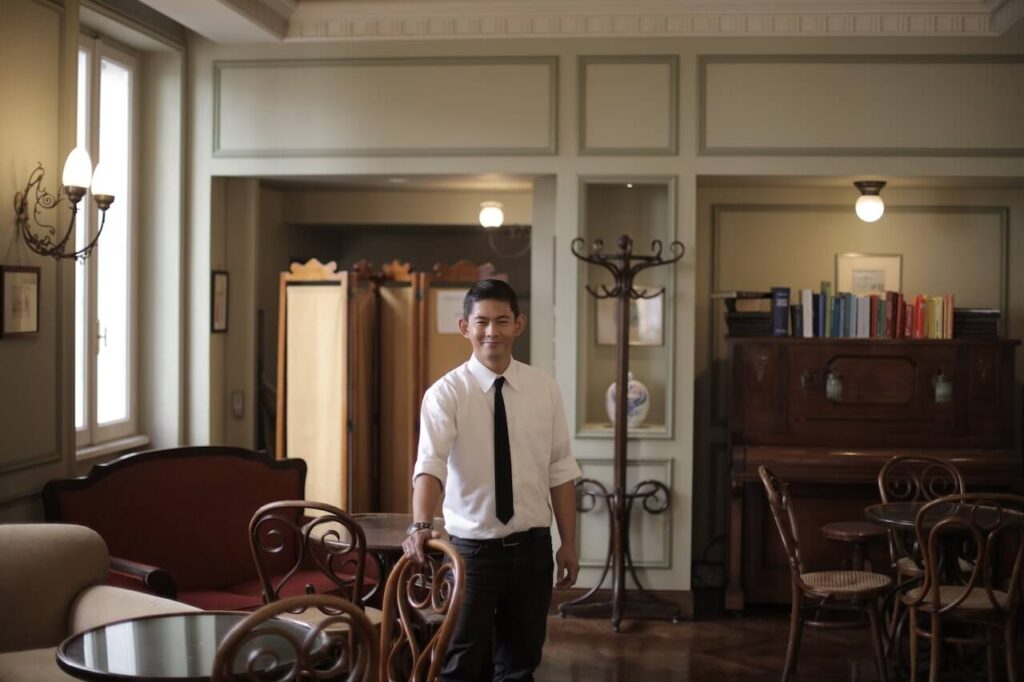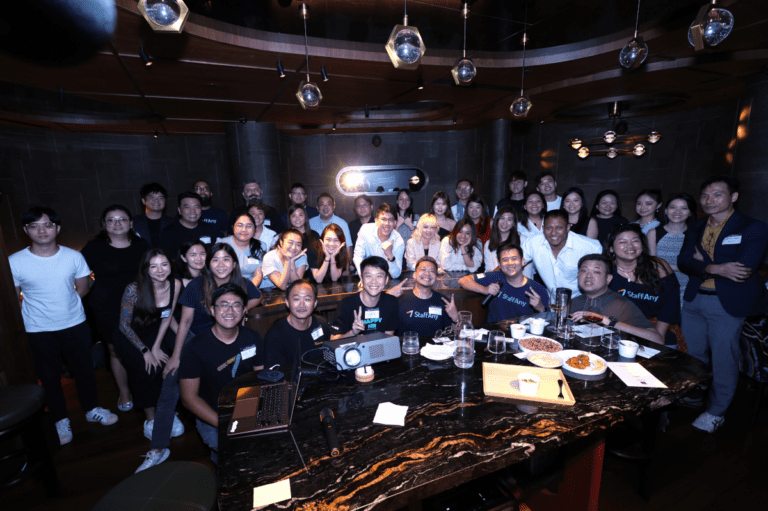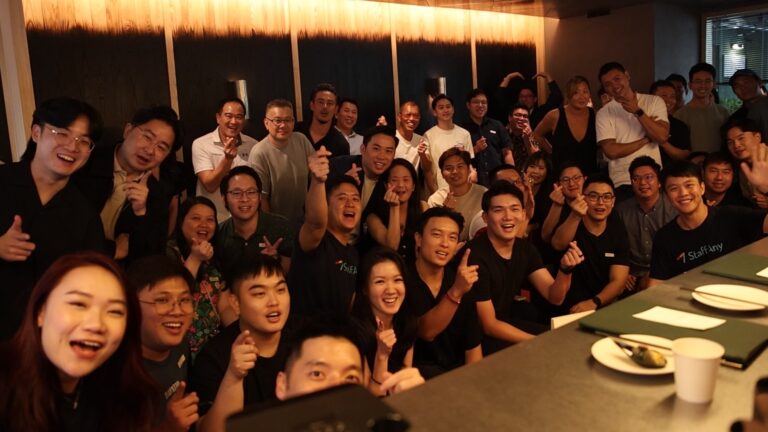F&B businesses are an integral part of Singapore’s vibrant economy. However, to operate an F&B business in Singapore, business owners need to comply with various regulations and requirements. Failing to do so may result in severe consequences, including fines and licence revocations.
In this article, we will discuss the essential F&B regulations in Singapore that every business owner should know.
Getting to Know the Singapore Food Agency (SFA)

The Singapore Food Agency (SFA) is the main regulatory authority for food-related matters in Singapore. The SFA’s primary role is to ensure that all food consumed in Singapore is safe and of high quality. The agency regulates all food establishments in Singapore, including restaurants, cafes, hawker stalls, and food manufacturers.
The SFA’s responsibilities include food safety inspections, food labelling regulations, food product testing, and ensuring that all food establishments comply with Singapore’s food hygiene standards.
Read More: A Guide to Incentives and Government Grants for F&B Businesses in Singapore
Do I Need Licences and Permits to Operate an F&B Business in Singapore?

Yes, if you are planning to operate an F&B business in Singapore, you will need to obtain several licences and permits. Here is a more detailed explanation of each licence and permit:
1. Food Shop Licences
All F&B establishments in Singapore, including restaurants, cafes, hawker stalls, and food manufacturers, must obtain a food shop licence from the Singapore Food Agency (SFA). The food shop licence ensures that the establishment has met all the necessary food hygiene and safety standards. The SFA conducts regular inspections to ensure that F&B establishments maintain these standards.
To obtain a food shop licence, the F&B establishment must fulfil specific criteria, such as having a suitable physical layout and equipment, maintaining proper food handling and storage practices, and having a pest control program in place. The food shop licence is valid for one year and must be renewed annually.
2. Liquor Licence
If your F&B establishment plans to sell alcohol, you need to obtain a liquor licence from the SFA. There are three types of liquor licences available in Singapore – public house licence, beer house licence, and restaurant licence.
The type of liquor licence required depends on the type of establishment and the amount of alcohol sold. For example, a restaurant licence allows the establishment to sell beer and wine, while a public house licence allows the establishment to sell all types of alcohol. The SFA conducts regular inspections to ensure that establishments with liquor licences comply with the necessary regulations.
3. MUIS Halal Certification Licence
If your F&B establishment plans to sell halal food products, you need to obtain a MUIS halal certification licence. The MUIS (Majlis Ugama Islam Singapura) is the Islamic Religious Council of Singapore who is responsible for issuing halal certification in Singapore.
To obtain a MUIS halal certification licence, the establishment must comply with the necessary halal certification requirements. The requirements include using halal-certified raw materials, ensuring that the food preparation process is halal compliant, and having a Muslim staff member oversee the preparation of halal food products.
Read More: Employee Assistance Programs and Their Benefits
4. WSQ Food Hygiene Course
All food handlers in Singapore must undergo a Workforce Skills Qualifications (WSQ) food hygiene course. This course is mandatory and aims to provide food handlers with the necessary knowledge and skills to handle food safely.
The WSQ food hygiene course covers topics such as personal hygiene, food storage, food preparation, and food safety. The course is available in several languages, including English, Mandarin, and Malay. After completing the WSQ food hygiene course, food handlers will receive a WSQ Statement of Attainment, which is valid for five years.
5. ACRA Company Incorporation
Before starting an F&B business in Singapore, you need to incorporate your company with the Accounting and Corporate Regulatory Authority (ACRA). This step is essential as it ensures that your business is registered and recognized by the Singapore government.
To incorporate your company, you need to provide the necessary documents, such as your company’s memorandum and articles of association, and pay the incorporation fee. After incorporating your company, you will receive a unique registration number from ACRA, which you will need to use for all official business transactions.
6. Import Licence
If your F&B business plans to import food products, you need to obtain an import licence from the SFA. The import licence ensures that the imported food products meet Singapore’s food safety standards.
To obtain an import licence, the F&B business must submit the necessary documents, such as a food safety plan and a list of imported food products. The SFA may also conduct inspections of the imported food products to ensure that they meet Singapore’s food safety standards.
7. Public Entertainment Licence
If your F&B establishment plans to provide live entertainment, such as live music or performances, you need to obtain a Public Entertainment Licence from the Singapore Police Force. This licence is mandatory for any establishment that provides public entertainment, including F&B establishments.
To obtain a Public Entertainment Licence, the F&B establishment must submit an application to the police, providing details of the entertainment provided and the dates and times of the performances. The police will assess the application and may conduct inspections of the establishment before granting the licence.
F&B Regulations for Hiring and Managing Staff in Singapore

Now that you have obtained the necessary licences and permits to operate your F&B business, you need to ensure that you comply with the regulations for hiring and managing staff in Singapore. The Employment Act is the primary employment law in Singapore and it outlines the basic terms and conditions of employment. Here are some important F&B regulations related to hiring and managing staff in Singapore.
1. Full-Time Employment
If you are hiring full-time employees for your F&B establishment, you must comply with the Employment Act’s regulations. According to the act, full-time employees must work no more than eight hours a day or 44 hours a week. If employees work beyond these hours, they are entitled to overtime pay.
The act also requires employers to provide annual leave, sick leave, and other employment benefits to full-time employees. Employers must also ensure that their full-time employees have a safe working environment and access to employee benefits, such as Central Provident Fund (CPF) contributions and medical insurance.
The minimum age for employment in Singapore, as regulated by the Ministry of Manpower (MOM), is 17 years old. Nevertheless, F&B proprietors are given the leeway to employ individuals as young as 13 years old. However, it is imperative to note that youths aged between 13 and 15 years are prohibited from handling kitchen equipment such as fire stoves and ovens.
2. Part-Time Employment
Part-time employees in Singapore are also covered under the Employment Act. Employers must ensure that their part-time employees receive the same basic employment benefits as full-time employees, including overtime pay, annual leave, and sick leave.
Employers must also provide their part-time employees with a safe working environment and access to CPF contributions and medical insurance. However, the specific employment benefits and entitlements for part-time employees may differ from those of full-time employees.
Read More: How to Calculate Daily Salary and an Incomplete Month Salary
3. Employment of Foreign Workers
If you are hiring foreign workers for your F&B establishment in Singapore, you must comply with the country’s foreign worker regulations. The Ministry of Manpower (MOM) regulates the employment of foreign workers in Singapore, and employers must obtain work permits and meet the necessary requirements to hire foreign workers.
Employers must also pay a monthly foreign worker levy for each foreign worker they employ. The foreign worker levy aims to regulate the number of foreign workers in Singapore and encourage employers to hire local workers.
Employers must also ensure that their foreign workers are aged 18 and above. Besides that, they can only work up until the age of 60. However, prior to finalising the contract, it is incumbent upon employers to verify that:
- Foreign workers have a legitimate work permit prior to the beginning of their duties.
- They work solely for the employer and within the boundaries of the job scope that is agreed upon in the contract, with no outside employment.
Foreign workers also need an employment pass in order to work in Singapore. The three types of employment pass that are eligible and F&B owners can look out for are:
- Employment Pass: for skilled professionals with a monthly salary of > S$3,900
- S Pass: for mid-level skilled professionals with a monthly salary of > S$2,400
- Work Permit Pass: for semi-skilled level professionals with a monthly salary of < S$2,400
All passes remain valid for a period of 1-2 years, and they may be renewed upon expiration. For each S and Work Permit pass worker employed, a levy charge will be assessed. It is essential to note that the levy charge increases with an increase in the number of foreign workers employed, so higher recruitment results in a greater levy charge.
4. Full-Time/Part-Time Contract
When hiring employees for your F&B establishment in Singapore, you must provide them with a written employment contract. The employment contract for both Full-Time and Part-Time employees must contain the following elements in the following order:
- Appointment Position: the employer should start by indicating the position that the employee will hold. For instance, employee X will assume the duties of a head chef.
- Working Schedule: this section outlines the specific number of days and hours that the employee is required to work each week, for example, 6 days and 44 hours per week.
- Probation Clause: employers may include a probation clause that ensures the employee is suitable for the role. This can last up to one year.
- Job Responsibilities: the contract should include the job responsibilities to ensure that the employee is aware of the duties they need to perform. For example, employee X will have to create new menus, help his staff prepare meals and report to management at Z Restaurant.
- Remuneration Package: this section should include salary, bonuses, leave, overtime, and public holiday pay, among others. Employers must state the salary rate and the date of the first paycheck. Additionally, they must include a statement on the need to pay for the Central Provident Fund (CPF) as required by law.
- Employee Benefits: this section should cover any benefits offered to employees, such as meals, healthcare, and staff discounts, among others.
- Code of Conduct: employers should clearly state their values, regulations, and expectations regarding how their employees should conduct themselves while on the job.
- Termination: employers must indicate the duration of the notice period that an employee must provide in the event of terminating their employment. For example, after one month of service, employee X is required to give one month’s notice to terminate his employment.
Read More: A Comprehensive Guide for Small Business Human Resources Management in the F&B Industry
Looking for a reliable and efficient solution to generate payslips for your F&B business in Singapore? Look no further than StaffAny’s payslip generator!
With our easy-to-use platform, you can quickly and accurately generate payslips for your employees, complete with all the necessary information required by MOM. Say goodbye to the hassle of manually creating payslips and streamline your payroll process today. Try StaffAny’s payslip generator now or contact us for more information!












